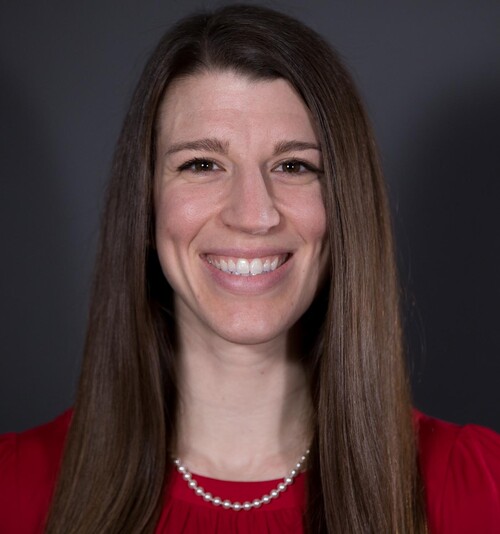Caitlin Nichols

For a cell to become cancerous, it needs to accumulate mutations in so-called driver genes, which control normal processes of cell growth. “For the last 30 years, the main strategy for treating cancer has been to drug the genes that make cancer cells grow and divide out of control,” says Caitlin Nichols, a PhD candidate in biological and biomedical sciences. “But there are only so many genes that drive cancer, and many of them are hard to target with traditional drugs,” Nichols explains.
Nichols focuses on alterations in essential genes, non-driver genes required for all cells to survive. Each cell in the body has two versions of an essential gene, one each from the mother and father. “In tumors, cells frequently lose large portions of their DNA, sometimes deleting one version of an essential gene while the other stays intact,” Nichols explains. This deletion makes cancer cells different from normal cells which, according to Nichols, presents a potential strategy for targeting cancer cells that leaves other cells unaffected.
Although this strategy was first tested in 1999, technology, such as inexpensive DNA sequencing and CRISPR, had to evolve before a technique could be fully explored. “The ability to systematically define what the essential genes are, what versions of them exist, and how frequently they are deleted in tumors is a recent development,” Nichols says.
Nichols has validated this idea, first by characterizing the losses of different versions of essential genes. Her analysis identified over 5,000 instances in which these losses can occur, representing candidates that she could use to target cancer cells. She then performed proof-of-concept experiments on two instances, inactivating the version of the essential gene retained in cancer cells. “We found that this strategy, in fact, reduces the growth of cancer cells while leaving models of normal cells intact,” she says.
While much work remains to be done before this strategy reaches the clinic, this novel approach to targeting cancer cells is exciting to Nichols. “Why not take advantage of features that are different about a tumor?” she asks. “The loss of one version of an essential gene does not itself cause cancer, but it is a distinguishing characteristic and represents vulnerabilities we can use.”

